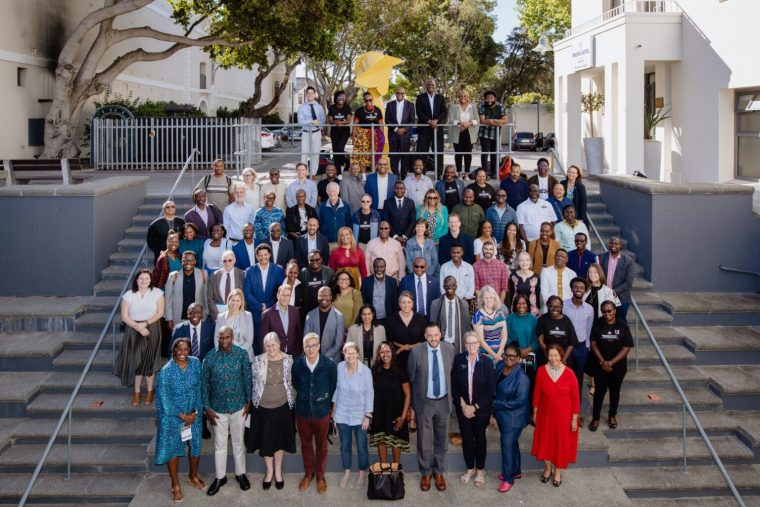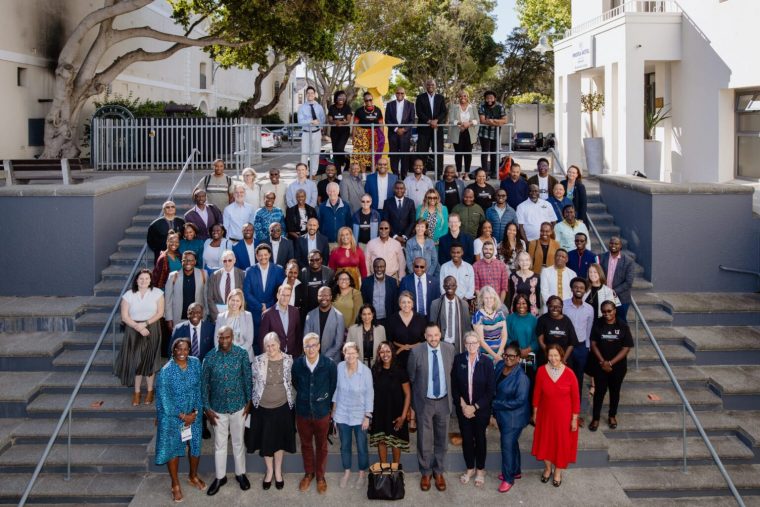Since its inception in 2012, the Mastercard Foundation Scholars Program has been a beacon of hope for young people across Africa, providing unparalleled opportunities to pursue their dreams, uplift their families, and make lasting contributions to their communities. Today, the Mastercard Foundation is proud to build upon the Scholars Program’s legacy of transformative impact with the launch of the Africa Health Collaborative (AHEHC), a groundbreaking 10-year initiative to revolutionize primary healthcare across the continent.
Africa, home to 16 percent of the world’s population, currently faces a significant shortage of skilled health workers, with only 2.2 skilled health workers per 1,000 population – one-third of the global average.[i] By 2030, there will be a shortage of about six million skilled health workers. This, combined with the fact that the health sector in Africa contributes only about five percent to the continent’s GDP (compared to the global average of 10 percent), underscores the urgent need for targeted interventions to unlock the sector’s untapped economic potential.
“The Africa Health Collaborative seeks to leverage universities to address the critical challenges facing the health sector in Africa and in the process create work opportunities for young people,” said Peter Materu, Chief Program Officer at the Mastercard Foundation. “By strengthening primary healthcare, enhancing workforce development, and promoting entrepreneurship and innovation, we aim to create a sustainable impact on population health and unlock significant economic growth across the continent.”
The Africa Health Collaborative is anchored in the principles of partnership, emphasizing respect, inclusivity, and collaboration among all stakeholders. By co-creating solutions and embracing diverse knowledge systems, the Collaborative aims to foster a shared vision and culture of collective impact. Furthermore, the Collaborative aims to develop a dynamic, sustainable, and robust network of leading African universities, alumni, government agencies, start-ups, and not-for-profit and private sector partners to create dignified and fulfilling work across the health sector.
Dawit Wondimagegn, Associate Professor at the Department of Psychiatry at Addis Ababa University, comments, “The creation of an ecosystem where Africans connect to determine the type and organization of primary care, centring primary care in policy and action, and creating a critical mass of collaborators to showcase that young Africans could have a prospect and future as actors in the development and delivery of primary care in Africa for Africa.”
AHEHC focuses on three pillars of work to achieve its objectives:
Health Employment: Enhancing institutional capacity across Africa to train skilled workers for primary healthcare, meeting the growing demand, and contributing to the extension of systems that employ and retain this primary care workforce.
Health Entrepreneurship: Optimizing entrepreneurial ecosystems within African universities, AHEHC will support the launch and scaling of health start-ups, creating jobs and driving innovative solutions to address healthcare challenges.
Health Ecosystems: Collaborating to engage with broader health sector actors and enabling African students to acquire advanced skills across diverse disciplines crucial for sustainable and transformative growth in the health sector.
The Africa Health Collaborative recognizes that unlocking the full potential of the health sector requires addressing barriers that hinder progress, particularly in primary healthcare. These barriers include poor human resources capacity and access to health services, weak incentive structures, unaffordability of care, poor access to health services and fragmented health systems.
“Our shared vision is to work with partners to provide youth with knowledge and hands-on learning opportunities required for developing high-quality, primary health care delivery in Africa. The Health Collaborative is envisioned to be part of broader, multi-sector efforts led by Africans, for Africans. This work will help stimulate Africa’s economic growth, address access-to-care issues, and create stable, rewarding jobs in contributing to the health sector, ultimately contributing to robust societies,” said Professor Joseph Wong, Vice President, International, at the University of Toronto.
The Africa Health Collaborative envisions a transformative impact on primary healthcare across Africa through strategic interventions. This includes equipping 30,000 skilled health practitioners and community health workers to deliver innovative and high-quality primary healthcare services, fostering overall community wellness, and contributing to economic transformation.
Additionally, the Collaborative aims to nurture over 10,000 innovative and sustainable health ventures, creating a vibrant network of health entrepreneurial ecosystems. Working collaboratively with a shared vision, AHEHC seeks to build a robust network of partners, sharing best practices and lessons to create healthier and more prosperous communities.
The Mastercard Foundation and its esteemed partners in this Collaborative, including Amref International University, Addis Ababa University (AAU), African Leadership University (ALU), African Institute for Mathematical Sciences (AIMS), Ashesi University, Kwame Nkrumah University of Science & Technology (KNUST), Moi University, University of Cape Town (UCT), and University of Toronto (U of T), are excited to embark on this transformative journey, committed to building a healthier, more sustainable future for Africa.
About the Mastercard Foundation
The Mastercard Foundation is a registered Canadian charity and one of the largest foundations in the world. It works with visionary organizations to advance education and financial inclusion to enable young people in Africa and Indigenous youth in Canada to access dignified and fulfilling work. Established in 2006 through the generosity of Mastercard when it became a public company, the Foundation is an independent organization separate from the company, with offices in Toronto, Kigali, Accra, Nairobi, Kampala, Lagos, Dakar, and Addis Ababa. Its policies, operations, and program decisions are determined by the Foundation’s Board of Directors and leadership.
[i] World Health Organization. 2016. Health Workforce requirement for Universal Health Coverage and Sustainable Development Goals; Background paper. Geneva: WHO.
More News & Events
Skip scroller content
Building Inclusive Health Systems for People in Contact with the Criminal Justice System in Africa
Join this webinar to explore how Africa can build inclusive health systems that protect the dignity, safety, and well‑being of people who come into contact with the criminal justice system.
Dignity, Data, and Disruption in Africa’s Health Systems: A Young Leader’s Reflection
John Nyagaka, a Mastercard Foundation Scholar and AHC Young Leaders Table Chair, reflects on his transformative experience at the 2025 Annual Convening.
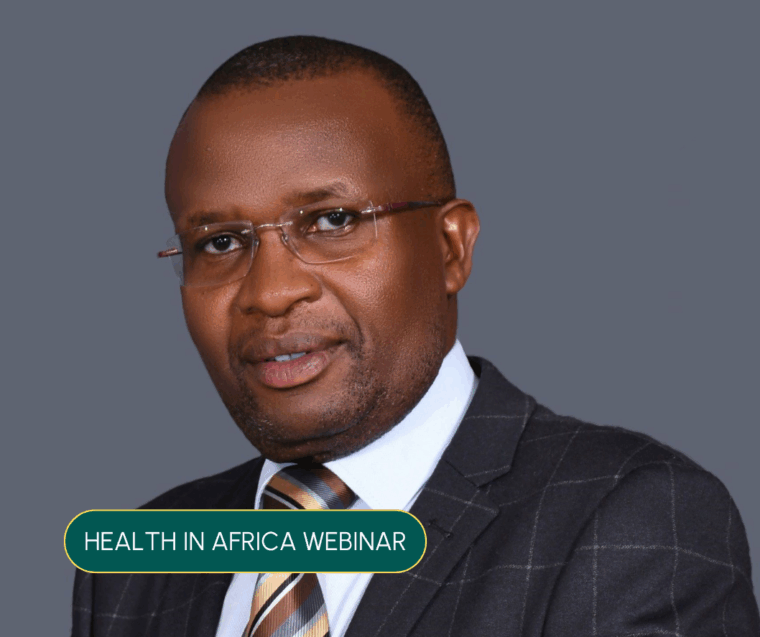
What Works: Improving Maternal and Newborn Health in Kenya and Ethiopia
Join this webinar to explore how community-led systems and digital innovations, in partnership with local leaders, are scaling sustainable healthcare impact and delivering life-saving care for mothers and their newborns.

Apply for the AIMS Master’s in Mathematical Epidemiology (MathEpi) Scholarship
Apply for the 2025 AIMS MathEpi Master’s program. Fully funded scholarships for African students in statistics and public health. Deadline: March 15.

Apply for KNUST’s CPD-Eligible Short Courses in Health Systems and Services Management
Applicants must meet the following requirements to qualify for the scholarship: Short Courses and Timelines 23rd – 27th February 2026: Emergency Preparedness and Response to Epidemic/Pandemic-Prone Diseases 10th – 14th February 2026: Community Emergency Care 24th – 27th February 2026: Palliative Care Module 1 23rd – 27th March 2026: Introduction to Healthcare Quality Improvement (IQI) […]
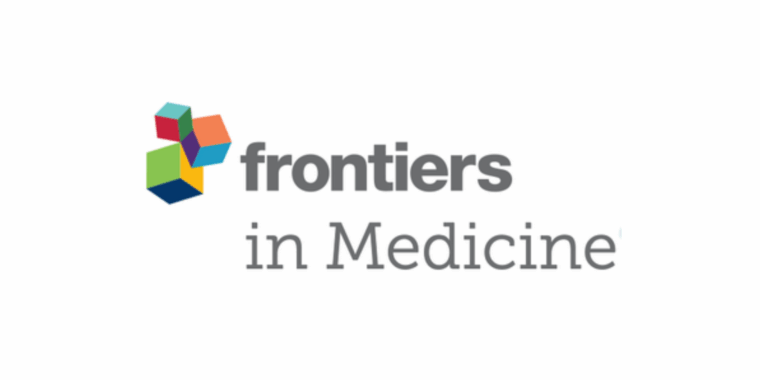
Call for Insights & Stories: Frontiers Opens Special Collection for AHC Partners
The Africa Health Collaborative (AHC) is pleased to share an exciting opportunity for all AHC institutional partners to share original research, reviews, case studies, policy briefs, perspectives, and reflective pieces in a new article collection titled “United in Partnership: Academic Collaborations for Primary Health Care Transformation” by Frontiers in Medicine. This special collection is being […]

A New Chapter of Collaboration: AHC Welcomes Prof. Joachim Osur as Executive Steering Committee Chair
The Africa Health Collaborative (AHC) has announced Prof. Joachim Osur, Vice Chancellor of Amref International University, as the new Chair of the Executive Steering Committee (ESC). The symbolic handover took place during the closing ceremony of the 2025 AHC Convening in Rwanda, held in October 2025. This marks a significant leadership transition from Prof. Nhlanhla […]
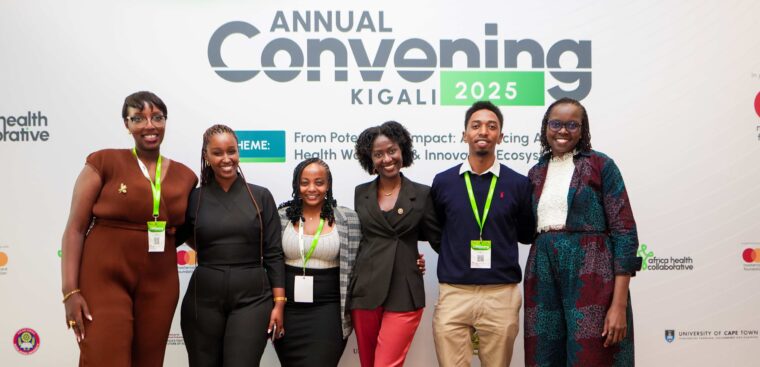
Africa Health Collaborative 2025: Driving Transformative Change in Primary Healthcare Future
Last October, over 170 policymakers, health experts, academics, and youth innovators from 14 countries came together for the Africa Health Collaborative’s (AHC) 2025 Annual Convening, hosted by the African Leadership University (ALU) in Kigali, Rwanda.

Engineering Dignity: Designing Low-Cost Prosthetics in the University of Cape Town’s MedTech Lab
Read about how Jemila Abdulai’s internship at UCT’s MedTech Lab strengthened her commitment to human-centered engineering, demonstrating how affordable innovations like the ADL Arm can expand access, restore dignity, and transform lives in underserved communities.

Graduate Scholarship Opportunities at the Kwame Nkrumah University of Science and Technology
Apply for graduate (MPh, MSc, MPhil, PhD) scholarships at the Kwame Nkrumah University of Science and Technology.
